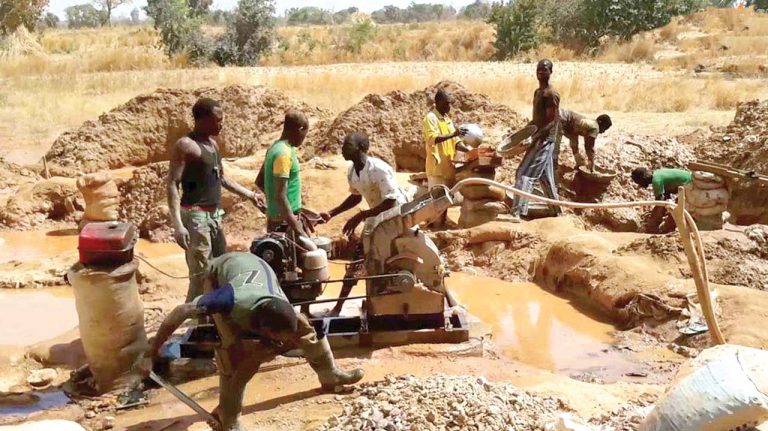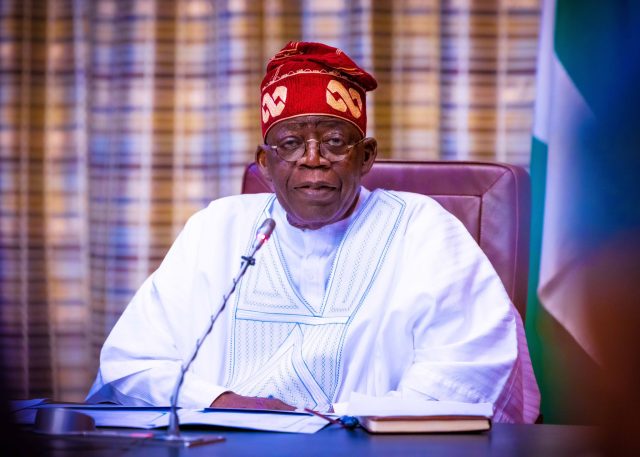
In the first half of 2022, petroleum subsidy claims surpassed Nigeria’s oil and gas revenue by N210 billion, TheCable understands.
Subsidy or under-recovery is the shortfall for the underpriced sales of premium motor spirit (PMS), better known as petrol. The cost is deducted from the federation account because Nigeria regulates petrol price and sells it at a cheaper rate for its citizens.
Within the period, the Nigerian National Petroleum Company (NNPC) Limited recorded N2.39 trillion as gross revenue from oil and gas receipts, while subsidy claims amounted to N2.6 trillion.
Of the figures, TheCable Index analysis showed that Nigeria paid N1.59 trillion to cover part of the subsidy costs in the last six months — leaving an outstanding balance of N1.01 trillion to be recovered from July 2022 proceeds in August.
This year, the federal government has projected to spend N4 trillion on petrol subsidies.
The details, seen by TheCable, are contained in NNPC’s monthly presentation to the federation account allocation committee (FAAC) meeting on Tuesday, July 26.
For the month of June, the oil company deducted N319.18 billion from the federation account as payment for petrol subsidy.
In January, February and March 2022, petrol subsidy payments gulped N210.38 billion, N219.78 billion, and N245.77 billion, respectively.
In April, Nigeria spent N271 billion andN327.07 billion in May 2022 to cater for the shortfall of the importation of petrol (subsidy).
“The value shortfall on the importation of PMS recovered from June 2022 proceeds is N 319,176,182,836,31 while the outstanding balance carried forward is N1.01 trillion,” the report said.
Further analysis showed that the development contributed to NNPC’s inability to remit revenue to the federation account as subsidy continues to erode gains.
PETROL SUBSIDY CLAIMS HIT N2.6 TRILLION IN 6 MONTHS
A breakdown of the subsidy claims showed that N564.65 billion was carried forward from the previous month as an unrecovered value shortfall and N263.95 billion from May 2022 subsidy outstanding, including N501.30 billion for the current month’s subsidy cost.
Overall, the value shortfall for the period stood at N1.32 trillion.
Of the total figure, NNPC deducted N319.18 billion from the federation account, leaving an outstanding balance of N1.01 trillion to be carried forward and recovered from July proceeds due in August.
“The estimated value shortfall of N1 490 413 402 007 66 consisting of arrears of N 479 688 823 026 00 plus estimated June 2022 value short fall of N 1 010 724 578 981 66 is to be recovered from July 2022 proceed due for sharing at the August 2022 FAAC meeting,” the report added.
By implication, it showed that the federation is owing N1.01 trillion in outstanding subsidy claims for the half year of 2022 — despite paying a total of N1.59 trillion.
UPTICK IN MONTHLY OIL REVENUE
Further analysis showed that the oil company, however, surpassed its monthly revenue projection for the second consecutive month. In June, it recorded N490.19 billion as gross revenue from domestic crude and gas sales — up from 414.94 projected revenue.
In May, it recorded N470.61 billion in gross revenue.
In the last six months, it recorded 2.39 trillion as gross revenue — leaving a shortfall of N101.56 billion.
Nigeria has failed to benefit from high global oil prices due to non-functional refineries, low oil production and a subsidy regime.
International Monetary Fund and the World Bank have asked the federal government to retrace its steps on petrol subsidy spending. The institutions have repeatedly said the petrol subsidy policy in Nigeria is not targeted at those most in need.
PETROL SUBSIDY TO GULP N6.7 TRILLION IN 2023
In its 2023-2035 medium-term expenditure framework & fiscal strategy paper (MTEF&FSP), the federal government has projected that petrol subsidy provision would cost the nation N6.72 trillion by 2023.
In January, the federal government postponed the planned petrol subsidy removal for 18 months, citing “high inflation and economic hardship”.
If it works out as planned, subsidy payment would cost the nation N3.36 trillion by mid-year 2023, according to the government’s calculations.
TheCable


